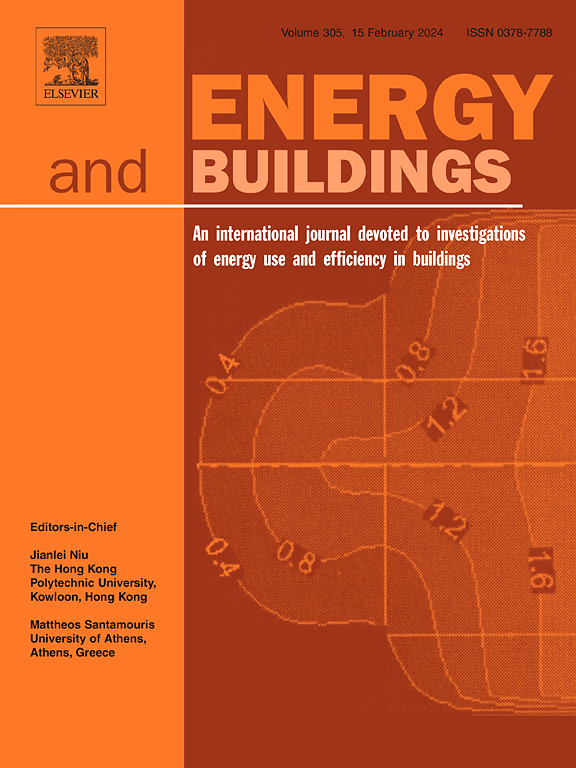Probabilistic forecasting for building energy systems using time-series foundation models
IF 7.1
2区 工程技术
Q1 CONSTRUCTION & BUILDING TECHNOLOGY
引用次数: 0
Abstract
Decision-making in building energy systems critically depends on the predictive accuracy of relevant time-series models. In scenarios lacking extensive data from a target building, foundation models (FMs) represent a promising technology that can leverage prior knowledge from vast and diverse pre-training datasets to construct accurate probabilistic predictors for use in decision-making tools. This paper investigates the applicability and fine-tuning strategies of time-series foundation models (TSFMs) in building energy forecasting, using Chronos as a case study. We analyze both full fine-tuning and parameter-efficient fine-tuning approaches, particularly low-rank adaptation (LoRA), by using real-world data from a commercial net-zero energy building to capture signals such as room occupancy, carbon emissions, plug loads, and HVAC energy consumption. Our analysis reveals that the zero-shot predictive performance of TSFMs is generally suboptimal. To address this shortcoming, we demonstrate that employing either full fine-tuning or parameter-efficient fine-tuning significantly enhances forecasting accuracy, even with limited historical data. Notably, fine-tuning with low-rank adaptation (LoRA) substantially reduces computational costs without sacrificing accuracy. Furthermore, fine-tuned Chronos TSFMs consistently outperform state-of-the-art deep forecasting models (e.g., temporal fusion transformers) in accuracy, robustness, and generalization across varying building zones and seasonal conditions. These results underline the efficacy of TSFMs for practical, data-constrained building energy management systems, enabling improved decision-making in pursuit of energy efficiency and sustainability.
基于时间序列基础模型的建筑能源系统概率预测
建筑能源系统的决策关键取决于相关时间序列模型的预测准确性。在缺乏来自目标建筑的大量数据的场景中,基础模型(FMs)代表了一种很有前途的技术,它可以利用来自大量和多样化的预训练数据集的先验知识来构建用于决策工具的准确概率预测器。本文以Chronos为例,探讨了时间序列基础模型(TSFMs)在建筑能耗预测中的适用性和微调策略。我们分析了全微调和参数高效微调方法,特别是低阶适应(LoRA),通过使用来自商业净零能耗建筑的真实数据来捕获诸如房间占用率、碳排放、插头负载和HVAC能耗等信号。我们的分析表明,TSFMs的零射击预测性能通常是次优的。为了解决这一缺点,我们证明,即使在有限的历史数据下,采用完全微调或参数有效微调也能显著提高预测精度。值得注意的是,使用低秩自适应(LoRA)的微调在不牺牲精度的情况下大大降低了计算成本。此外,微调的Chronos tsfm在准确性、稳健性和通用性方面始终优于最先进的深度预测模型(例如,时间融合变压器),可以跨越不同的建筑区域和季节条件。这些结果强调了TSFMs在实际的、数据受限的建筑能源管理系统中的有效性,使追求能源效率和可持续性的决策得到改善。
本文章由计算机程序翻译,如有差异,请以英文原文为准。
求助全文
约1分钟内获得全文
求助全文
来源期刊

Energy and Buildings
工程技术-工程:土木
CiteScore
12.70
自引率
11.90%
发文量
863
审稿时长
38 days
期刊介绍:
An international journal devoted to investigations of energy use and efficiency in buildings
Energy and Buildings is an international journal publishing articles with explicit links to energy use in buildings. The aim is to present new research results, and new proven practice aimed at reducing the energy needs of a building and improving indoor environment quality.
 求助内容:
求助内容: 应助结果提醒方式:
应助结果提醒方式:


